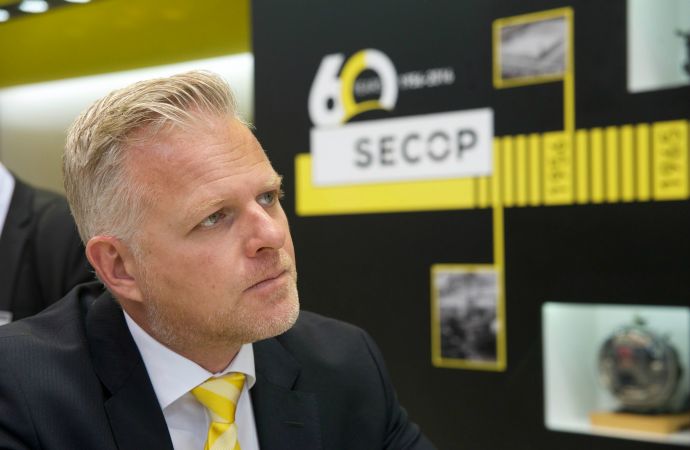The growing popularity of smaller supermarkets is good news for manufacturers of hydrocarbons-based refrigeration equipment, according to Mogens Søholm.

The trend in the food retail sector towards smaller stores is boosting demand for self-contained refrigerated cabinets that use hydrocarbons, Mogens Søholm, CEO of German compressor maker SECOP, told Accelerate Europe magazine.
Søholm splits the supermarket sector into two philosophies: hypermarkets with big remote systems, where the refrigerant is piped into the store and the refrigeration equipment is housed away from the shop floor; and self-contained, hermetic systems with smaller compressors.
“The advantage of self-contained systems is that they allow you to change the layout of your supermarket,” he said.
Smaller convenience stores are becoming increasingly popular. “People don’t want to sit in a car and drive 20km” to shop in a hypermarket,” said Søholm, arguing that the trend towards smaller, local stores supports wider uptake of hydrocarbon technology.
Søholm sees bottle coolers as another growth area. “For years, this segment has been extremely cost-driven,” he argued.
“The only disadvantage of hydrocarbons compared to CO2 is that hydrocarbons are flammable and CO2 isn’t.”
- SECOP CEO Mogens Søholm
Hydrocarbons facing competition from CO2
Asked about competition with CO2 – another popular natural refrigerant, particularly in the supermarket sector – Søholm replied: “I’m a big fan of hydrocarbons. Otherwise you wouldn’t have seen me invest so much in this!”
He concedes that CO2 has a role to play in larger supermarkets but is convinced that impressive energy efficiency, quieter compressor operation, and relative lack of construction materials give hydrocarbon systems the edge in smaller store formats. “The only disadvantage of hydrocarbons compared to CO2 is that hydrocarbons are flammable and CO2 isn’t,” he argued.
Does SECOP fear increased competition in smaller store formats from CO2 condensing units being marketed in Europe by the likes of Panasonic, Green&Cool and Advansor?
“Of course we’re following what’s happening. But from a technical point of view, hydrocarbon is still the better solution. Condensing units don’t make CO2 more energy efficient or make the compressors any quieter. They’re just a different way of providing the refrigeration system,” Søholm argued.
Efficiency improvements in SECOP’s new product range launched at last year’s Chillventa – including new variable speed drive ‘DLV’ and ‘NLV’ series compressors for use in commercial cooling systems – are helping SECOP to increase its market penetration.
“If you convert a traditional R134a system to hydrocarbons, you gain a lot of efficiency by changing the refrigerant alone. If you add variable speed technology on top of that, then you see improvements – in terms of energy efficiency and noise, for example – that are tremendously large,” Søholm argued.
This is an excerpt from a wide-ranging interview with Mogens Søholm. Click here to read the full story in the winter edition of Accelerate Europe magazine.
Related stories


_1636620968.jpeg)

